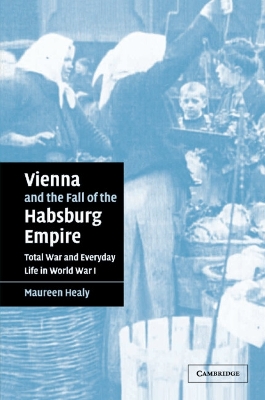Studies in the Social and Cultural History of Modern Warfare
1 total work
Maureen Healy examines the collapse of the Habsburg Empire from the perspective of everyday life in the capital city. She argues that a striking feature of 'total war' on the home front was the spread of a war mentality to the mundane sites of everyday life - streets, shops, schools, entertainment venues and apartment buildings. While Habsburg armies waged military campaigns on distant fronts, Viennese civilians (women, children, and men 'left at home') waged a protracted, socially devastating war against one another. Vienna's multi-ethnic population lived together in conditions of severe material shortage and faced near-starvation by 1917. The city fell into civilian mutiny before the state collapsed in 1918. Based on meticulous archival research, including citizens' letters to state authorities, the study offers a penetrating look at Habsburg citizenship by showing how ordinary women, men and children conceived of 'Austria' in the Empire's final years.
